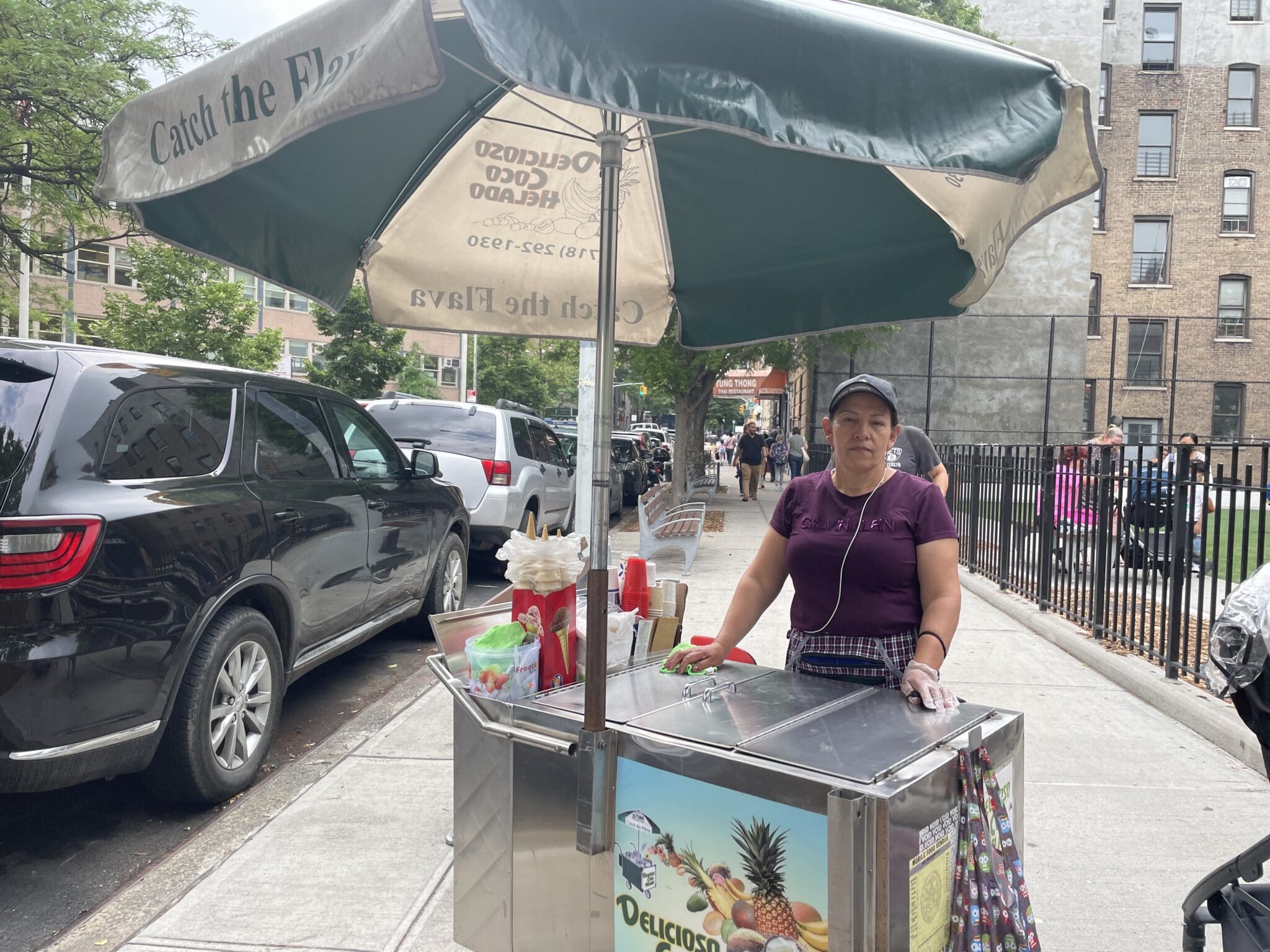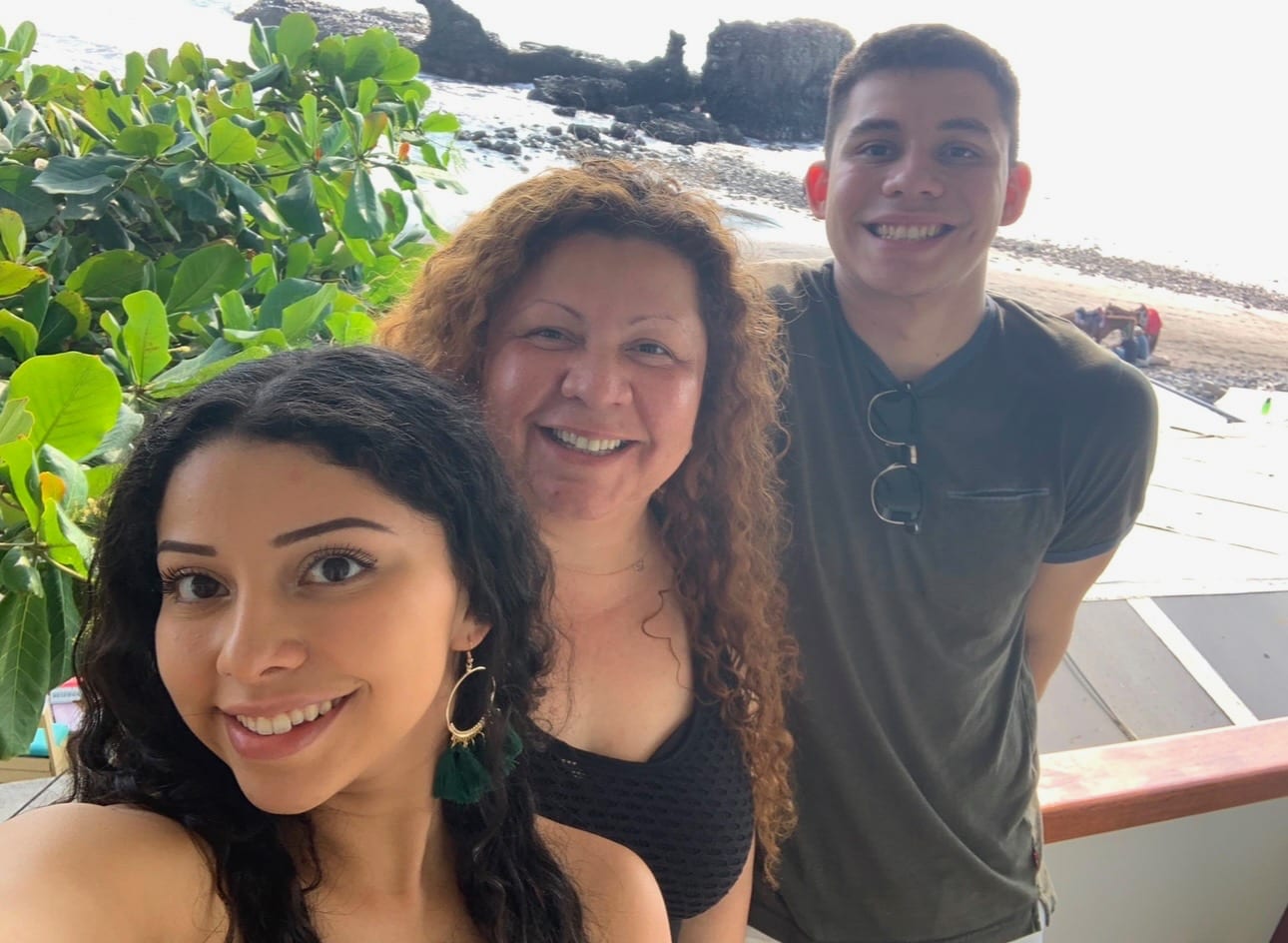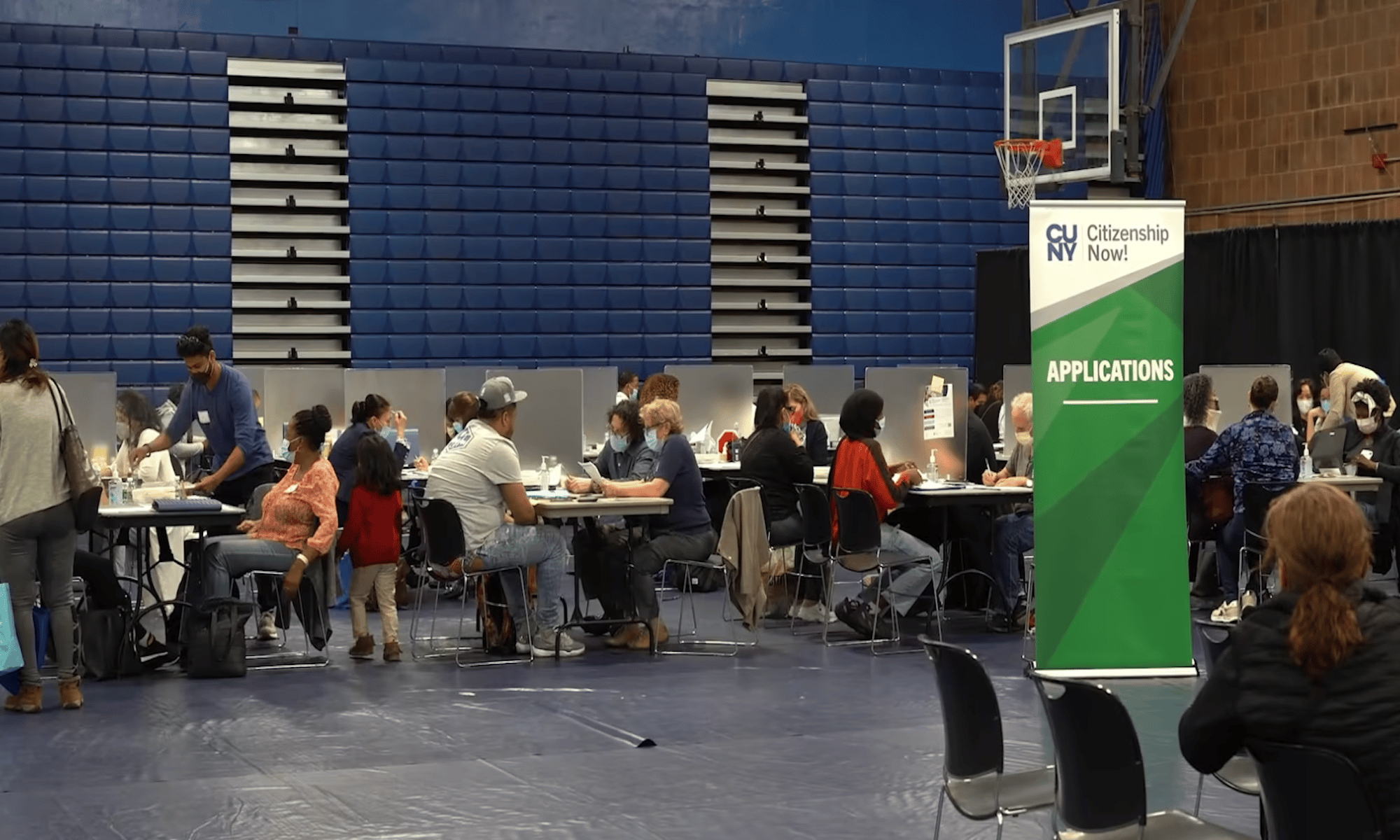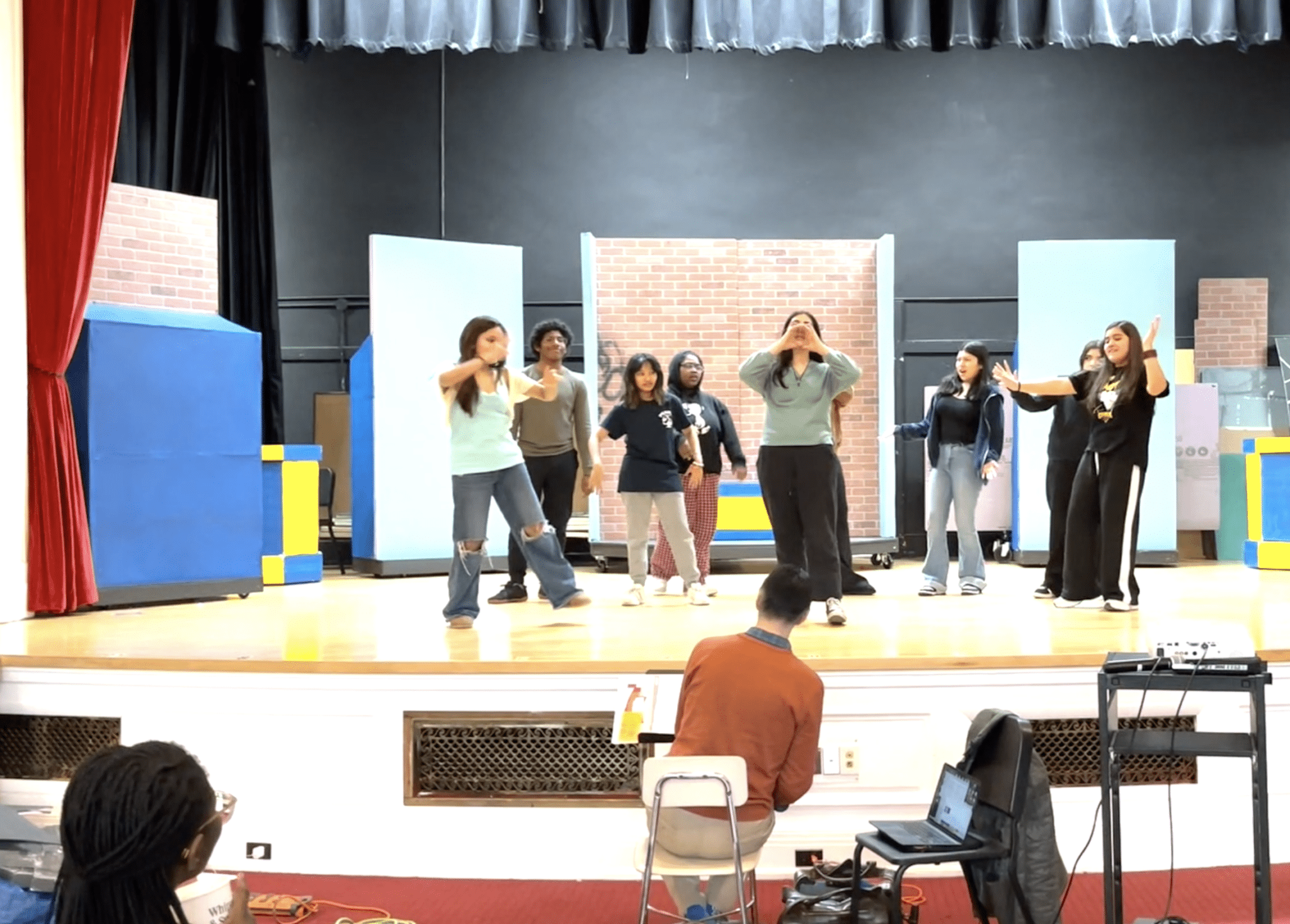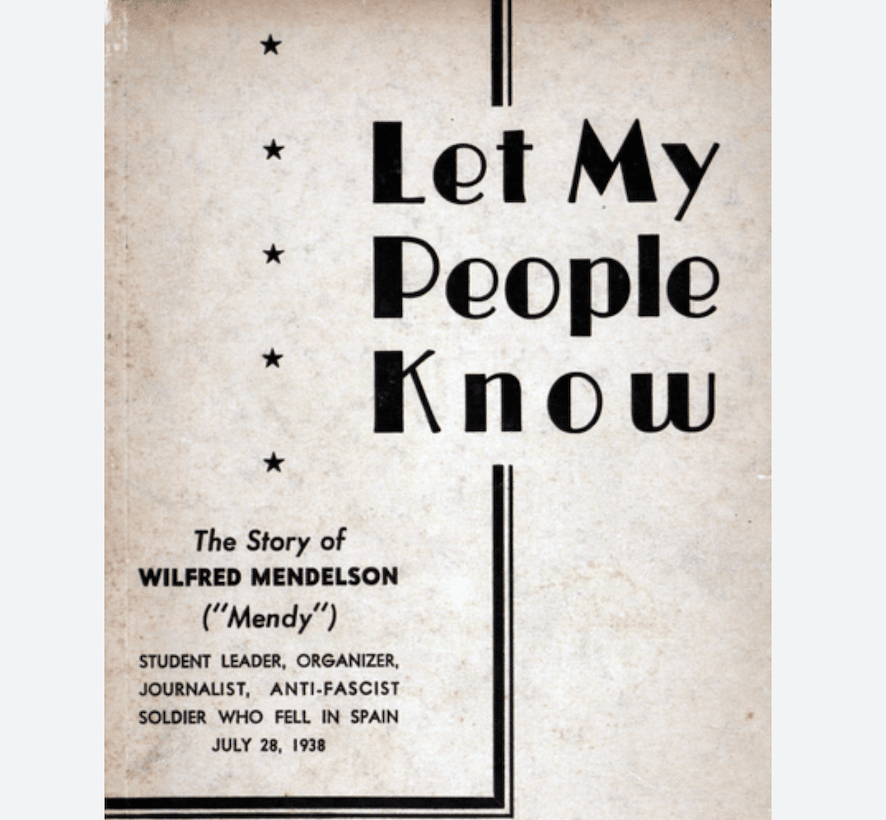Luz Urgiles in her usual spot with her ice cream cart. Photo by Doris Cajamarca.
This story was reported and written by a student in the Early College Program at City College Academy of the Arts (CCAA).
On most days, you find Luz Urgiles on the street corner near P.S. 128 in Washington Heights. Her bright green cart and green and white stripped umbrella shield her from the blaring sun. Her visor rests on her head revealing thick, glossy black hair with a few white strands tied back in a ponytail. She often wears a black fuzzy vest over a black sweater to shield her from the cold breeze. She is a fixture in the neighborhood. But as a businessperson, she faces many difficult and stressful challenges.
Luz and other ice cream vendors we spoke with in Washington Heights share problems that make doing business hard. Like other business people, she has to deal with rising wholesale prices for what she sells. In 2019, a 5oz cup cost her $1. Now prices range from $1.50 to $2. Fewer people are willing to pay for the more expensive ice cream. “I would sell anywhere up to 300 a day. Now I’m lucky if I sell 150,” Luz said.
The same Italian ice bucket she used to pay $24.50 for now costs her around $33. While she still charges $1.50 for ices, she plans to raise it to $2 to make up for lost sales. But she feels hesitant because the price hikes make her customers angry. “People are already upset with the old price, but I have to increase people aren’t buying like they used to,” she said.
Then there is crime in the city and Washington Heights. Luz and other vendors fear violence. They worry about their personal safety. In May 2022, robberies increased by 21.2 % from a year earlier in the 33rd police precinct. Burglary was up 26% and grand larceny 40.3%, according to New York Police Department (NYPD) statistics. Vendors feel vulnerable and worry about becoming victims.
Luis Loja another ice cream vendor has posts in front of two schools. He remembers pushing his cart up a hill on his way to his spot near P.S. 115. A woman came up to him and asked if he could gift her an ice cream. He said he was going give it to her, but had to stop his cart because he was on a hill. When he stopped she flashed a knife. “I was scared but the people around said to not be scared, that she carries it around but wouldn’t hurt me. But why would she carry it if she didn’t use it,” he said answering his own question.
Some vendors also worry about working without permits. The city has granted 2800 full-time food vendor permits and two thousand for seasonal and green cart permits for fruit and vegetable sellers. On its website, NYC Business Solutions says most permits have been issued and there are “…long waiting lists.”
That leaves vendor like Carmen, who didn’t want us to use her last name, dodging the police. Carmen has been selling ice cream for 12 years and she has been unable to obtain a permit. She has even had her cart confiscated and received a fine. She recalled, “I left my cart chained to a pole as I came to my apartment getting ready to head out for the day. But when I came down, I saw cops tugging at it.” She said by the time she unlocked it, they hauled her cart away and she was hit with a fine. “How do they expect me to pay fines? They took away my only way to make money,” she said in frustration.
She got her cart back, but she knows other vendors who had their carts taken and they weren’t returned. She says she checks to see if she can get her permit, but the waitlist is a problem. Thousands of people like Carmen are waiting to get a permit to be able to work to provide for themselves and their families. Carmen said “I’m not sure what I can do. I try and get the permit they require and I’m willing to pay what they ask. Nothing is free of course. But how am I supposed to work if they won’t give me a permit?”
These vendors like their work and like being part of the community. Carmen said, “I just want to do my job. I want the police to be more vigilant and I want to feel safe. I don’t want financial aid. I just want to be able to work in peace.”
Luis similarly said, “I just want to be able to work without fearing something crazy is going to happen, I want to have protection.”
“I just want people to know this is hard, just as hard as any other job and for them to give me the same respect I show them,” Luz said before she went to serve someone.
Tags: City College Journalism Early College Program The City College Academy of the Arts (CCAA) The City College of New York
Series: High School Journalists
